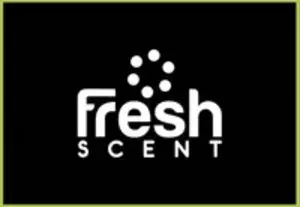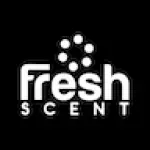In a world where businesses fight for consumer attention through sight and sound, one powerful branding tool often gets overlooked-scent. Fragrance has the unique ability to evoke emotions, trigger memories, and influence behavior at a subconscious level. Integrating scent into your branding strategy can give your business a powerful edge.
This blog explores the science and strategy behind scent branding and how businesses can harness fragrance to create a deeper connection with their audience.
What Is Scent Branding?
Scent branding, also known as olfactory branding or scent marketing, is the strategic use of fragrance to reinforce a brand’s identity. Just as logos and jingles make a brand visually and audibly recognizable, a signature scent can make a brand instantly familiar through smell.
From luxury hotels and retail stores to spas, car dealerships, and even banks-businesses across industries are tapping into scent to enhance their brand presence.
The Science Behind Scent and Memory
Smell is the only sense directly linked to the limbic system, the brain’s emotional center. This means scents bypass rational thinking and create immediate emotional responses. According to research:
75% of emotions are triggered by smell.
People can remember a scent with 65% accuracy after one year, compared to only 50% for visuals after three months.
This powerful connection makes scent a branding superpower.
Why Scent Is a Game-Changer for Branding
Here’s how scent enhances your brand identity:
1. Creates Instant Recognition
A signature scent becomes a brand memory trigger. Think about the smell of a freshly brewed Starbucks coffee or the subtle scent in a high-end boutique are intentional and memorable.
2. Enhances Customer Experience
Fragrance can calm nerves, energize moods, or elevate luxury depending on the brand’s intent. A pleasant-smelling environment improves dwell time, mood, and purchase likelihood.
3. Differentiates You from Competitors
In saturated markets, sensory branding- especially scent- can set you apart in ways visuals alone can’t. It appeals on an emotional and primal level.
4. Strengthens Emotional Connections
A well-crafted scent builds brand affinity. Customers don’t just remember what they saw or heard- they remember how your brand made them feel.
Real-World Examples of Scent Branding
Abercrombie & Fitch: Their stores are known for a bold, youthful scent that appeals to their target demographic.
Singapore Airlines: They infuse their flight cabins and hot towels with their custom fragrance-evoking feelings of calm and exclusivity.
Westin Hotels: Their “White Tea” scent is diffused throughout properties globally, reinforcing a clean and rejuvenating identity.
How to Create a Signature Scent for Your Brand
Here’s a step-by-step guide to developing a fragrance that aligns with your brand:
1. Define Your Brand Personality
Is your brand playful, luxurious, calming, or energetic? Your scent should reflect your core values and emotional tone.
2. Work with a Scent Marketing Specialist
Fragrance experts or scent branding agencies can craft a custom olfactory profile based on your goals and audience.
3. Choose Application Points
Common touchpoints include:
Retail entrances
Customer waiting areas
Product packaging
Business cards or mailers
Hotel lobbies and elevators
4. Test and Evaluate
Use A/B testing to gather feedback on the impact of scent. Measure emotional responses, dwell time, and even sales conversions.
ROI of Scent Branding
Brands using scent marketing have reported:
Increased customer retention
Higher perceived brand value
Greater product interaction
Improved mood and loyalty
In a competitive landscape, scent may be the silent salesman you didn’t know you needed.
Tips for Implementing Scent Branding
Choose natural, non-overpowering fragrances.
Be consistent across all touchpoints.
Avoid scents that may trigger allergies.
Use diffusers, scented materials, or room sprays based on your environment.
Conclusion: Scent Is the Invisible Brand Asset
Branding isn’t just visual- it’s sensory. As businesses evolve to create holistic experiences, scent has emerged as a subtle yet powerful tool in marketers’ toolboxes.
A signature scent doesn’t just make your business smell good- it makes it memorable, emotional, and uniquely yours.
Wondering how fragrance defines your brand?
Request your free trial today and explore our Signature Scent Branding Service—crafted to elevate identity, evoke emotion, and leave a lasting impression.


